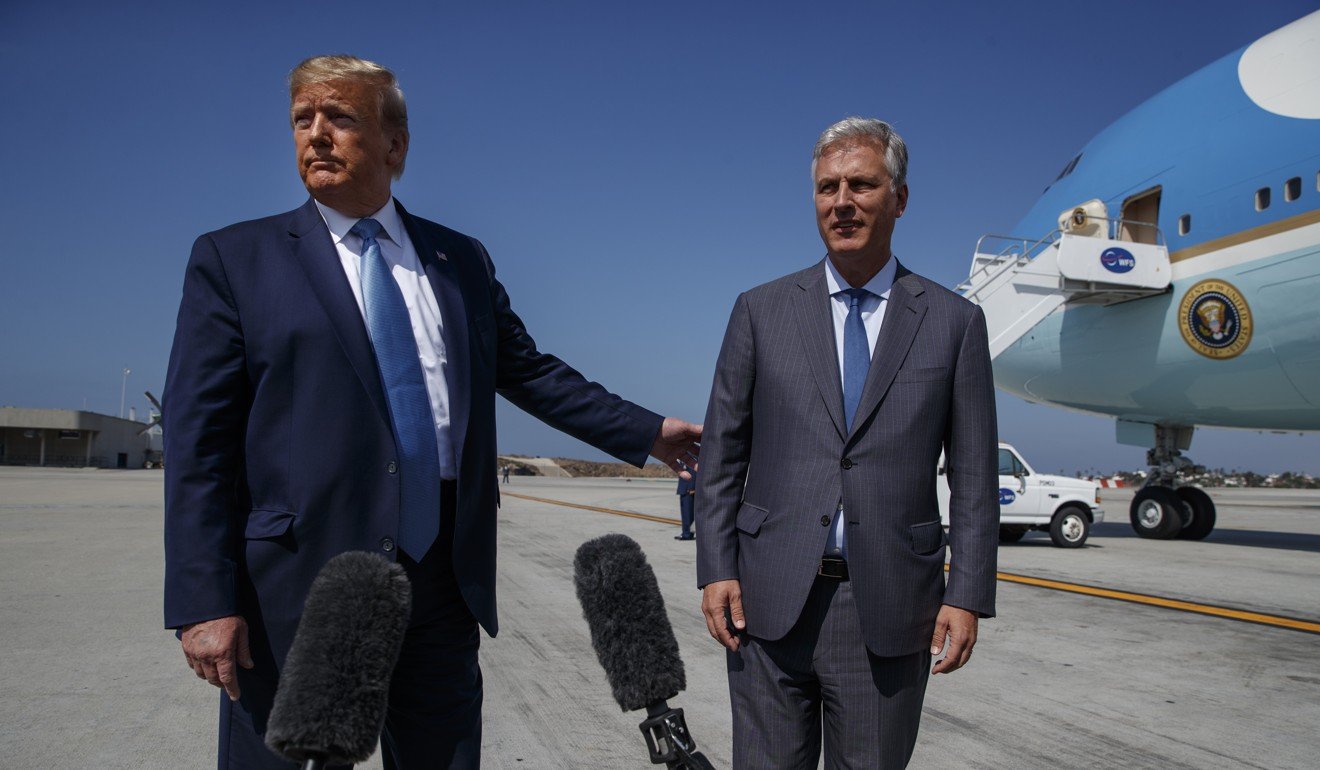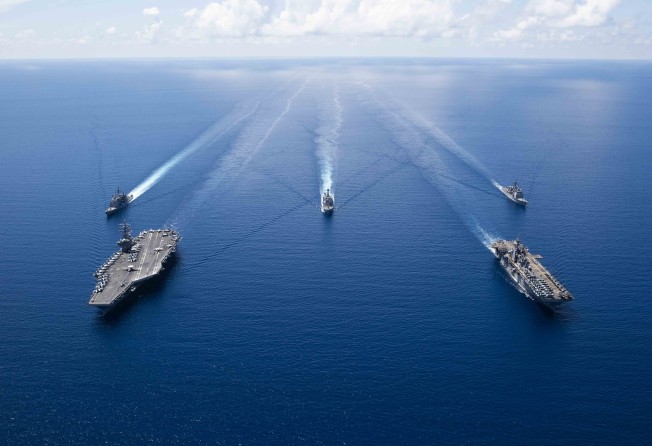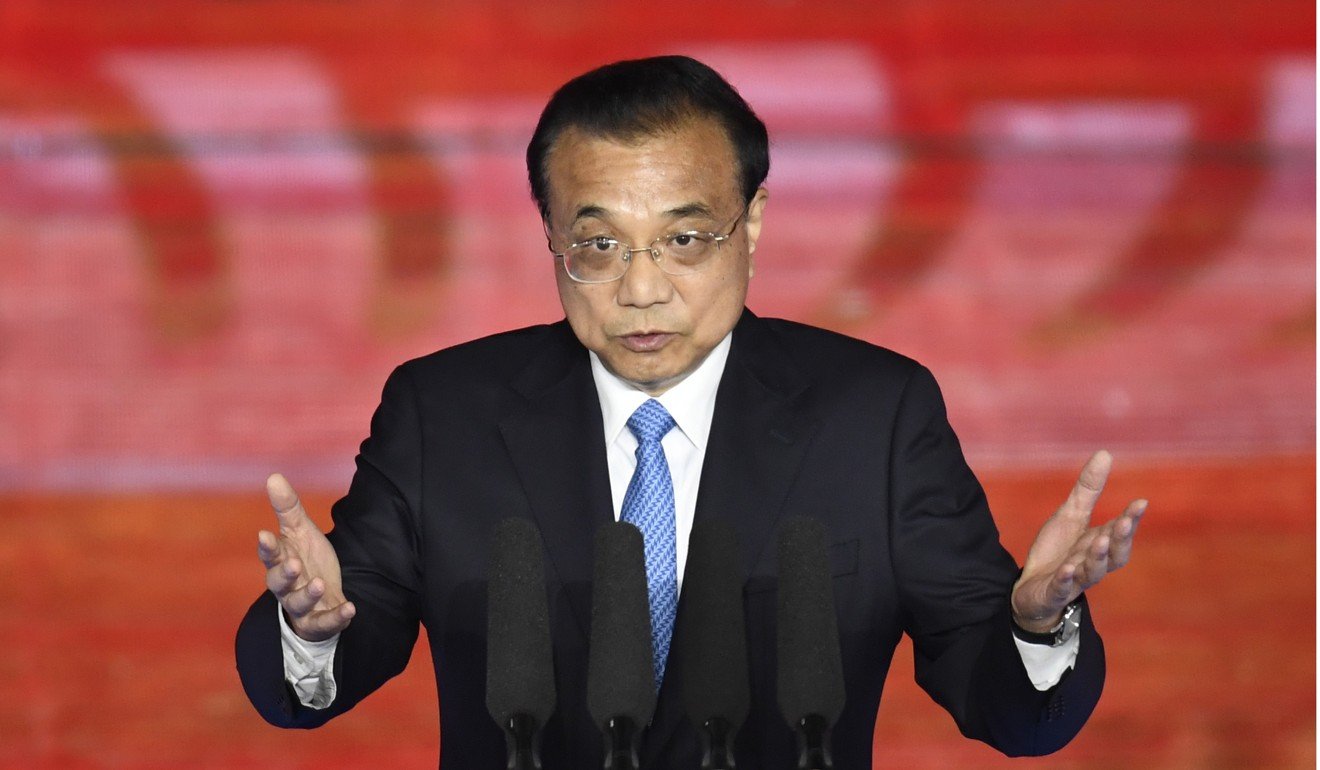
China-US strategic rivalry will be on display at East Asia Summit even if Donald Trump isn’t, observers say
- US president’s absence from annual event should not be seen as a lack of American interest in regional issues, observers say
- New national security adviser Robert O’Brien will head American delegation at two-day meeting, while Premier Li Keqiang will lead Chinese team

The absence of a top level US official at a regional forum in Thailand this weekend should not be seen as an easing of the strategic rivalry between Washington and Beijing, observers say.
The two-day East Asia Summit gets under way with preliminary meetings in Bangkok on Sunday, with the main event being held the following day in Nonthaburi, a city about 20km (12 miles) to the north.
While Chinese Premier Li Keqiang, Japanese Prime Minister Shinzo Abe and Indian Prime Minister Narendra Modi are all expected to be there, the American delegation will be headed by the newly appointed national security adviser Robert O’Brien and Commerce Secretary Wilbur Ross.
The presence of the relatively lower ranking US officials could be interpreted as a sign that US President Donald Trump’s attention on the region was waning, said Xu Liping, a professor at the Institute of Asia-Pacific Studies at the Chinese Academy of Social Sciences.
But that did not mean the power struggle between China and the US was in decline, he said. Rather, their rivalry was likely to loom large at the summit.

“While the White House has been less focused on Southeast Asia, that has not been the case for other US officials, including those from the state department and the Pentagon,” he said.
The East Asia Summit is an annual gathering of the leaders of the 10 members of the Association of Southeast Asian Nations (Asean), and representatives from China, the US, Russia, South Korea, Japan, India and Australia.
This year will be the first since the US joined the event in 2011 that it has not been represented by its president or a senior minister, despite the fact that the strategic tensions between Beijing and Washington, particularly in the South China Sea, continue to bubble.
China claims almost all of the resource-rich waterway but is locked in territorial disputes with Vietnam, the Philippines, Malaysia and Brunei – all of which are members of Asean – and has been challenged by the US and other nations over their rights to engage in so-called freedom of navigation operations there.
Several senior US officials have stepped up their anti-China rhetoric in the run-up to the summit. On Thursday, David Stilwell, assistant secretary of state for East Asia and the Pacific, said Asean members should work together to resist Beijing’s attempts to militarise the South China Sea.
A day earlier, US Secretary of State Mike Pompeo said at a dinner organised by the Hudson Institute – a New York think tank – that the US should do more “when China threatened its neighbours like Vietnam, and like the Philippines, and when they claimed the entire South China Sea”.
On Friday, a report by the Japanese news agency Kyodo quoted Asean diplomatic sources as saying the US had even released a discussion paper urging Asean members to “protest [against] China’s expansive and unlawful maritime claims” in front of the Chinese representatives at the meeting in Bangkok.
The US also wanted Asean members to ensure Beijing’s assertiveness in the South China Sea did not influence the content of a code of conduct for the disputed waterway, which is currently being negotiated by Asean and China, the sources said.
Collin Koh, a research fellow at Singapore’s Institute of Defence and Strategic Studies, said that while the South China Sea issue would be discussed at the summit, there were unlikely to be any serious clashes.
“The likelihood of an acrimonious exchange on the issue is low,” he said.
In a move that was widely seen as an effort to de-escalate tensions between Beijing and Hanoi ahead of the meeting, a Chinese survey ship that had been at the centre of a months-long stand-off near the disputed Vanguard Reef, last week withdrew from the area and returned home.
A recent report by Associated Press quoted two Southeast Asian diplomatic sources as saying that Vietnamese diplomats had questioned how progress on the code of conduct could be made when China continued to encroach on waters in which Hanoi had exclusive exploration rights.
A Chinese diplomat countered by saying Asean should not allow Vietnam to “hijack the code of conduct process”, the sources said.

Xu said that Beijing was likely to face a tougher challenge from Hanoi once Vietnam took over the chairmanship of Asean from Thailand after the summit.
“It is likely that Vietnam will make use of the chairmanship to advance its agenda, and as Vietnam has been elected as a nonpermanent member of the UN Security Council for the 2020-21 term, it is also likely to seek to increase its influence internationally and take more of the initiative on the South China Sea issue,” he said.
But neither Beijing nor Hanoi wanted to see an escalation of the conflict as it would be harmful to their economic interests, Xu said.
In 2014, a stand-off at sea grew into the worst diplomatic crisis between China and Vietnam in decades and sparked anti-China protests and riots across the Southeast Asian country.
“There will be disputes and confrontations, but neither side can change the game” Xu said.